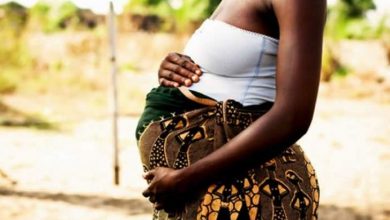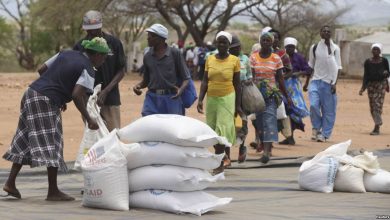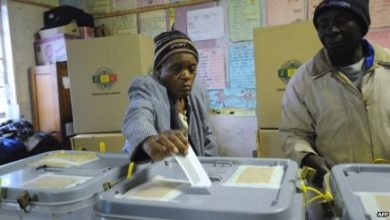How Covid-19-induced lockdown has put girls at heightened risk of sexual exploitation

By Sindiso Dube
NOTHANDO (15) * shed tears while giving a chilling account of how her uncle whom she stays with, in their one-room apartment in Bulawayo’s oldest suburb of Makokoba took her virginity at just 11-years-old.
Narrating how the uncle stole her life from her, Nothando said things got worse during the Covid-19 lockdown which led to the closure of schools and the implementation of stay-at-home orders, as her uncle saw this as an opportunity to sexually exploit her every day.
Investigations by CITE established that Nothando’s case is one of the more than dozen cases of violence against minor girls especially the most marginalised that have been reported on average a week at the Bulawayo Magistrates Court since the lockdown began in March last year.
A clerk of court at the Bulawayo Magistrates Court, who, however, asked not to be named because they were not authorised to speak to the press, confirmed that cases of sexual abuses that they were receiving per day since the Government stay-at-home orders began to paint an alarming picture.
“We are worried. The lockdown led to an over 50 percent increase in the number of reported cases of sexual violence at the courts. Nevertheless, we still suspect some incidents are going unreported and we hope we may witness an influx of cases if school opens where some of the victims will be able to meet people they can confide in,” said the clerk of court.
While lockdown measures are vital to halting the spread of Covid-19, investigations by CITE also found that being confined in the home puts girls at heightened risk of violence and cuts them off from education, essential protection services and social networks.
Social worker Duduzile Mhlanga said widespread lockdowns have resulted in horrific conditions where girls who are experiencing violence and abuse, have no one to turn to and nowhere to go.
She said the lockdown provides potential attackers or perpetrators “an opportunity to move into action because children have almost no access to teachers or community members to whom they might disclose abuse or display signs.
“There are serious concerns about the shadow pandemics that have come with Covid-19 such as sexual assault in a region already ravaged by high rates of sexual violence and teenage pregnancies caused by rape. The most dangerous place for a child for sexual violence is their home and school closures have left girls open to sexual violence from family, neighbours and community members. Lockdown poverty has also forced these minor girls into transactional sex to buy basics,” said Mhlanga.
The United Nations has also described sexual violence against girls under the coronavirus-induced lockdown as a growing “shadow pandemic”.
Sunga Mzeche, director of Hope for a Child in Christ (HOCIC), an organisation which works to protect children and empower vulnerable communities and marginalised groups agrees that, the Covid-19-induced lockdown was putting children especially girls at heightened risk of sexual exploitation.
“The Covid-19 lockdown has indeed heightened sexual exploitation of children especially girls. They are sexually exploited largely by the people they know and those they live with. This is because schools that have been acting as agents of social control in most communities are currently closed. Schools have been giving less room for abusers to abuse children but since they are now spending more time at home and in the community, it exposes them to some sexual predators,” said Mzeche.
She said a baseline survey they conducted in Bubi, Umguza and Umzingwane districts on the extent of child sexual abuse during Covid-19, established that closure of schools coupled with economic challenges brought about by the lockdown has forced some children particularly girls in rural areas to visit artisanal mining areas where are exposed to sexual abuse by artisanal miners who often give them money in exchange for sex.
In addition, Mzeche said a recent report from Mpilo Central Hospital showed an increase in the number of pregnant teens as compared to previous years.
Warned Mzeche: “Caregivers need to constantly monitor their children. Many times the abuse happens when the child is alone with the perpetrator, hence caregivers should not leave their children with people. In some instances, it may be the caregiver who is sexually abusing the child, in such cases, the children need to be empowered to say NO and to report the abuse to another person whom they trust.
“There is also a need for caregivers to practise positive parenting, they should not blame the child for what would have happened. Children should be taught to trust and discuss all their problems with their caregivers and the parents on the other hand should always create more time to talk to their children and hear their concerns.”
From her observation, it is clear that in times of crisis like the current Covid-19 pandemic, the most vulnerable members of society are always at the highest risk of harm.
Shocking statistics of six female juveniles – three below the age of 15 – who were part of the Kwekwe Junior Council and were reportedly impregnated or eloped with gold panners during the Covid-19 induced lockdown which were revealed during a Zimbabwe National Council for Welfare of Children (ZNCWC) annual convention which was recently held in Kwekwe are also a testimony that young girls were being exploited by being told that if they want something, they must provide sex to get it.
A report by World Vision titled: The Aftershocks of Covid-19 in Zimbabwe also found reported cases of abuse among girls to have more than doubled since lockdown with the largest increases being in underage pregnancies and early marriages.
“Before schools closed, girls had been reporting issues of gender-based violence. Since the pandemic, and having lost the protective effects of attending school, communities, teachers and girls are reporting increased incidents of pregnancy, sexual exploitation and early marriage despite channels of reporting more being difficult to access. Without certainty on the re-opening of schools and with most not accessing meaningful alternative education, girls and their families are losing hope,” the report reads in part.
An upper six pupil Sibusiso Dube (18) from Magwegwe North suburb said as lockdown continues, violence against girls and young women was a more harmful disease than the virus itself.
“There are many girls who are being violated physically and psychologically especially in remote communities, where they don’t have access to phones to seek help and this information is not coming out. It is sad and painful that people only talk about the need to obey the guidelines of Covid-19 and they don’t talk about the cases of violence against girls and women,” said Dube.
A senior official in the Ministry of Public Service, Labour and Social Welfare, who also asked that his name not be used because he was not authorised to speak to the press said the Covid-19 pandemic has exacerbated and added yet another layer of vulnerability to an already dire web of vulnerabilities of girls in the country.
“Although there is no accurate data on the number of girls that have been abused, the information receiving our offices is that calls to helplines from girls trapped in homes with their abusers have surged. It’s a bad situation that victims who might have confided to teachers and friends in school are finding it harder to seek help,” the official told CITE.
According to Childline Zimbabwe Business Development and Information Officer Buttler Nhepure girls have always been vulnerable to sexual exploitation regardless of there being a lockdown or not.
Nhepure said their organisation was always inundated with calls from girls who have suffered sexual abuse.
“From January to 12 February 2021, alone Childline received 97 cases of sexual abuse cases of girls. The reason being that during lockdown some of the girls are under lockdown with their perpetrators and from our statistics, relatives or family members form the largest percentage of perpetrators of sexual abuse at 59 percent according to our January to the beginning of February statistics. So, you can imagine, the perpetrator is a father or an uncle and now a child spends a prolonged period with the abuser,” stressed Nhepure.
He advised that there should be an increase in awareness on the reporting of sexual abuse on platforms like 116.
“We also encourage communities to be their children’s keeper and be the voice of those children that cannot report. A child belongs to us all and so it is our responsibility to play our part and protect them,” said Nhepure.
*Not her real name.






